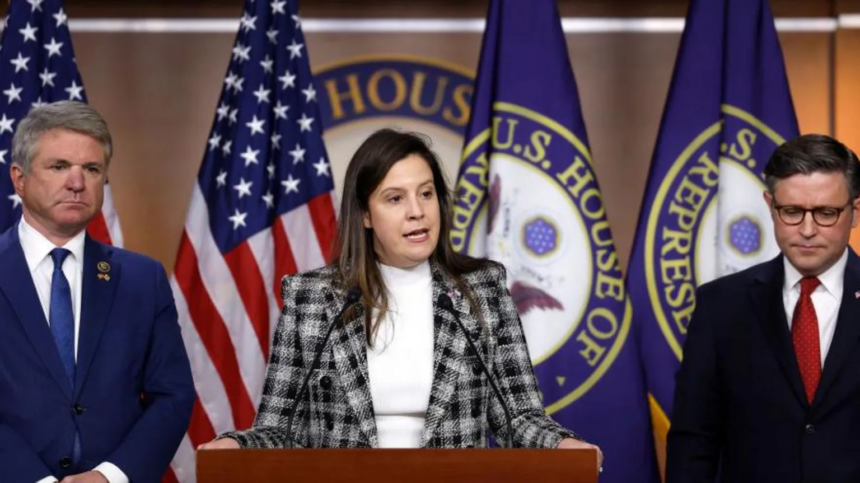President Donald Trump has made the decision to withdraw the nomination of New York Rep Elise Stefanik as the US ambassador to the United Nations. In a post on social media, Trump stated that it was crucial for Stefanik to retain her seat in the House of Representatives in order to protect the Republicans’ slim majority.
Trump expressed his confidence in Stefanik’s ability to secure her seat in the upcoming election, emphasizing her popularity among the people. He mentioned that there are other qualified individuals who can effectively represent the United States at the United Nations.
Stefanik, who had previously resigned from her position as the House Republican Conference chairperson in preparation for the UN role, will now rejoin the House leadership team. Speaker Mike Johnson commended her for her willingness to sacrifice the ambassadorship in order to continue serving in Congress.
Despite being a former critic of Trump, Stefanik had become a strong ally of the president and was his first cabinet pick. Her nomination was expected to receive Senate confirmation, but the vote was delayed due to the need for her support in passing Republican-backed legislation in the House.
The decision to withdraw Stefanik’s nomination came after discussions at the White House about the importance of maintaining the Republican majority in the House. Democratic House Leader Hakeem Jeffries criticized the move, accusing Republicans of being in a state of panic and fearing the loss of Stefanik’s district in the upcoming special election.
Stefanik will now continue to represent her solidly Republican district in upstate New York, where she has been a vocal critic of the United Nations. During her confirmation hearing, she pledged to align herself with Trump’s foreign policy agenda, including a “peace through strength” approach.
The Trump administration has taken a tough stance on the UN, ordering a review of US funding and implementing significant cuts to foreign aid. This has led to financial challenges for the organization, prompting a reduction in spending and a hiring freeze.
It remains to be seen who Trump will nominate as the next US ambassador to the United Nations. The withdrawal of Stefanik’s nomination marks the fourth nominee who did not make it through the confirmation process under the Trump administration.
In conclusion, the decision to withdraw Stefanik’s nomination reflects the political considerations at play in Washington. As the US navigates its role in the international arena, the appointment of a new ambassador to the UN will be closely watched by diplomats and world leaders.








